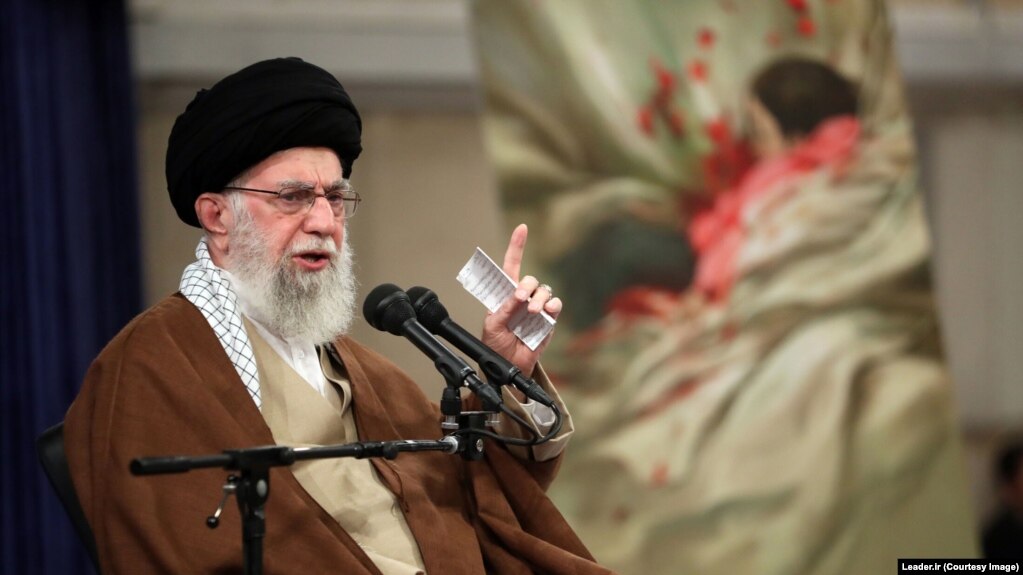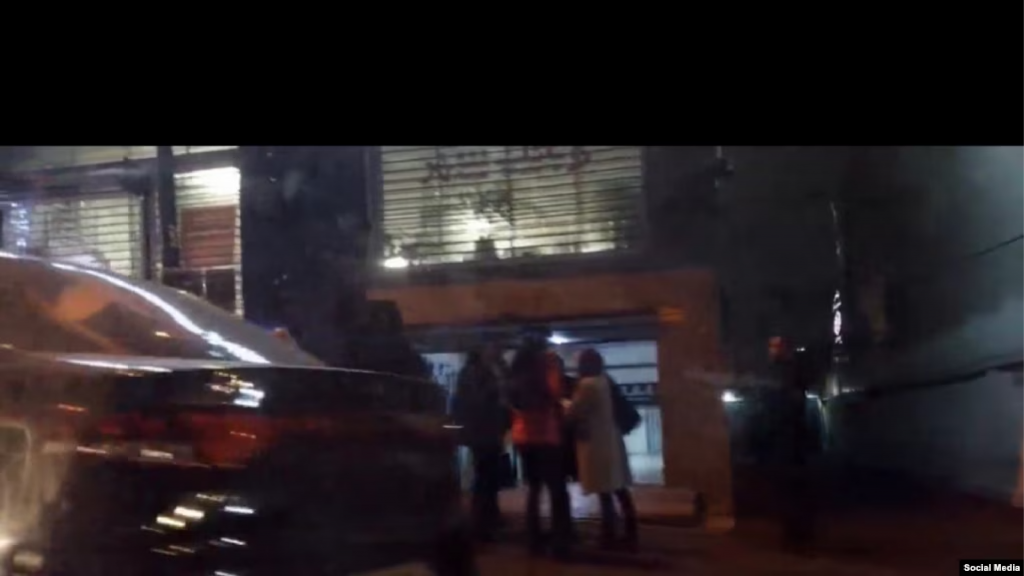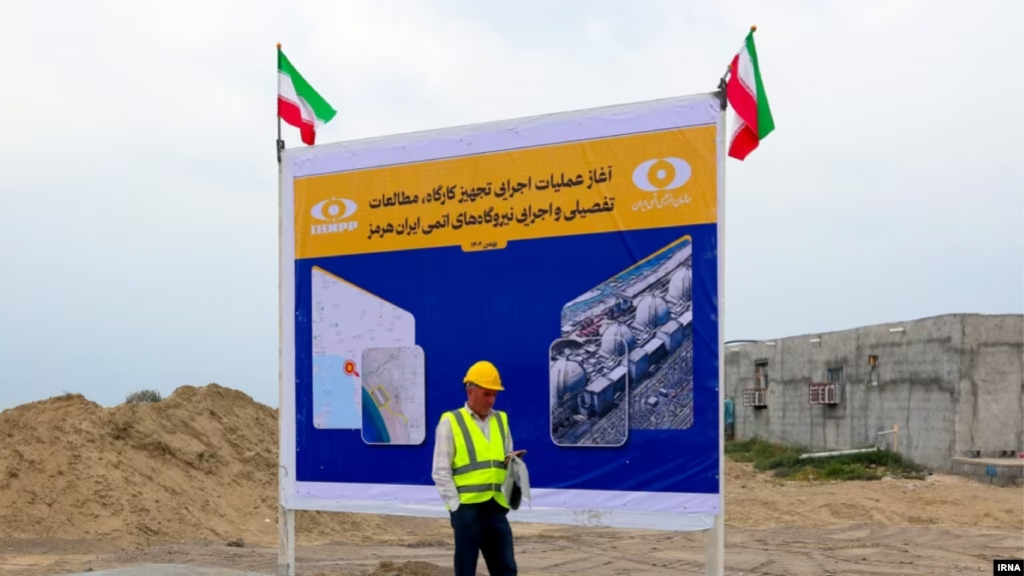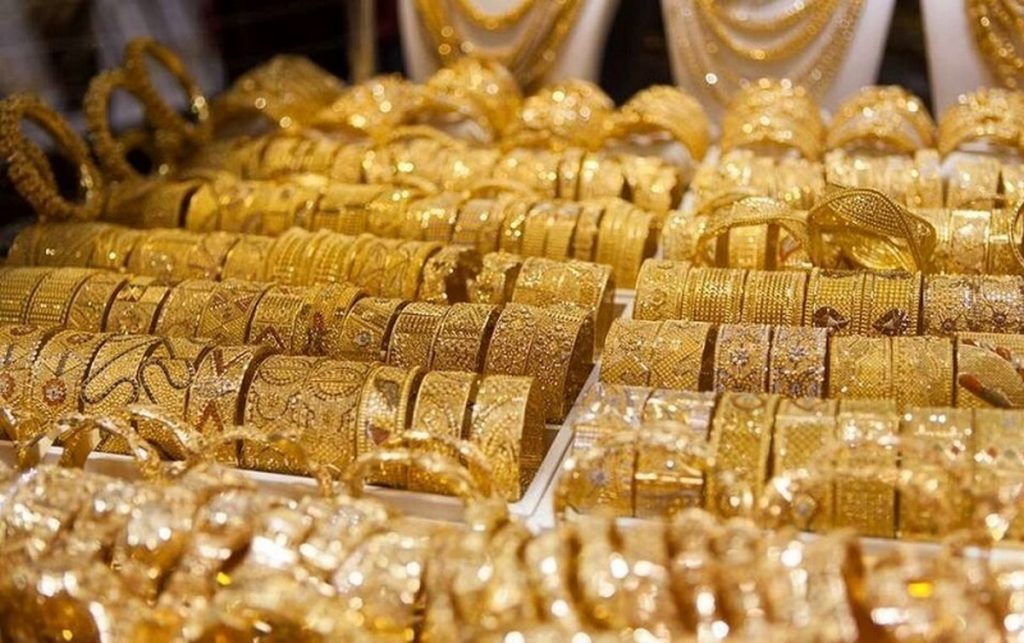
What Is the Desirable Level of Turnout in the March Elections?
The editorial of Arman Emrooz explains why the low turnout of 30% in the upcoming elections in March is unacceptable as it will discredit the establishment.
In less than a month, two elections in March will be held to determine the destiny of the Iranian Parliament for four years and the Assembly of Experts for eight years – two elections whose results are so sensitive because they will have tremendous impacts on the future of Iran and Iranians.
In the meantime, one of the hottest issues is predicting the level of public turnout in these elections. Based on their hopes and assessments, all groups or political figures are making predictions about the outcomes. It goes without saying that given the sensitivity of the current juncture and the significance of these two elections if they are held with minimum turnouts, they will discredit the establishment, which is why Iranian Supreme Leader Ali Khamenei has underscored maximum public participation in these two elections.
Now,, the question is: what is the desirable level of participation in the upcoming elections? What has been suggested so far is between 30% and 50%, and someone like Mohammad Reza Bahonar surprisingly said in one of his remarks on the elections that 30% turnout is not “bad” at all!
Unfortunately, without offering any arguments, some point to the level of participation in other countries, and comparing their turnout levels with Iran, consider a 30% to 40% turnout level desirable.
In the meantime, in neighboring countries like Turkey and Pakistan, the levels of participation in the elections are above 80% and 60%, respectively, while the age of voting in Pakistan is 21. Also, while the participation rate in the 11th Parliament election was 42%, how come they consider a 30% participation level good?
Moreover, the average participation rate in the past five rounds of elections for the Assembly of Experts was 57.2% — with 62% last time this election was held.
So it is obvious that any turnout under 50% is undesirable. Given the short time that remains, the best measures for gaining the desirable level of participation must be adopted.
The United States Does Not Intend to Attack Tehran
The editorial of Arman Melli contends that the United States will not attack Iran as it will be costly for Washington and its allies.
After Operation Al-Aqsa Storm, the Americans have been heavily involved in the issue of Gaza and the crisis in the region. Currently, the Israeli army is in a volatile condition, which shows that it has not been successful in achieving its goals after four months.
Currently, the Israeli army continues to bomb the people of Gaza, an act that has triggered a wave of resentment against Israel in the world. Moreover, the Americans who have given different weapons of mass destruction to Israel have now become isolated in the world. Widespread demonstrations that are held all over the world against the United States and Israel indicate that Israel and the United States are under tough pressure to end this war.
So what is happening in the region, including the attack on the US base on the Jordan-Syria border, is an exact calculated reaction. This base is the center for moving arms to Israel, meaning that arms were transferred to this base and were taken to Israel from there. Therefore, the resistance forces in Yemen, Iraq and Lebanon acted independently to create a kind of deterrence to stop the Americans from helping Israel in massacring people in Gaza.
Recently, the Americans began to make accusations against Tehran, saying that drones used in the attacks on the US base in Jordan were made in Iran. Iran had no role in this. Because of Iran’s position and its deterrence power, the Americans cannot act hurriedly in attacking Iran.
Naturally, suppose Iran is attacked and the Americans take reckless measure against Iran. In that case, the region will plunge into turmoil which will not benefit the United States as it is getting closer to the 2024 presidential election. Naturally, the US military attack will be costly, so most Pentagon officials maintain that attacking Iran will not benefit the United States and its allies. So they are trying to use Israel to assassinate the leaders of the Resistance Axis in Lebanon and Syria. Such moves are due to the weakness of Israel and the United States and the operation that took place in Syria is because of the stalemate that Israel is facing.
The Supreme Leader’s Regret Over Weakness in Messaging
The editorial of Arman Emrooz says that despite all the economic and livelihood problems, Iranian officials must do a better job in conveying the achievements of the government and the establishment.
During his meeting with economic actors and manufacturers and one day after visiting the Achievements Fair, Iranian Supreme Leader Ali Khamenei expressed his regret for the umpteenth time about the lack of messaging in the media about progress and not informing people about these achievements. Here the question is: given the numerous economic problems people suffer from and the pressure on people’s livelihood, of what achievements are people not informed?
Evidently, in the current media war, the enemies keep talking about economic failures, while the friends of the revolution and the establishment are trying to criticize economic inefficiencies so that they can put the economic system back on track to alleviate pressure on the people. Naturally, a sympathetic retelling of the weaknesses will not only not create frustration but is a measure to create hope for the future.
Nonetheless, one can dare to say that officials are not capable of crafting clear messages regarding the government’s achievements because despite the economic problems and shortcomings in the household economy, we are witnessing prominent growth in Iran’s economic sectors including industry and mining. For example, Iran is among the first 10 countries in producing steel and is constantly breaking records in steel, copper, oil, petrochemicals and electricity companies.
The other issue is the lack of investment in the field of communication and messaging by Iranian officials. One of the most important investments in the country with regard to the country’s messaging system is developing this system and using smart and innovative methods.
It seems that the supreme leader’s regret must be a wakeup call for those officials who do not take the issue of messaging seriously. As the country is close to the 45th anniversary of the Iranian revolution, many will ask about its achievements in these years. Was freedom attained? Was independence achieved? Has the establishment been able to fulfil its promises of being a republic and being Islamic?
Officials must seriously consider the supreme leader’s expression of regret and take measures to improve messaging about achievements.
What Are People’s Demands?
The editorial of Setareh Sobh urges the Iranian people to demand from the establishment the implementation of measures to defuse tensions in the region so that they can lead normal lives.
These are the same people who 44 years ago overthrew the shah’s regime through a revolution; the same people who went through and tolerated eight years of war with Iraq; the same people who, whenever possible, rushed to the ballot boxes to express their demands; the very people who had a high turnout of 80%, 85% and 73% in different presidential elections.
These are the people who have stopped participating in elections since 2019: in the parliamentary election only 42% of people voted, while in the presidential election of 2021, only 48.8% of people took part — while 13% of votes were invalid. This means that only 35.8% of people voted in the presidential election.
Due to flawed economic, social and cultural policies, people have faced problems and their tables have shrunk, while suffering from continuous inflation.
People’s demand from the establishment is that it should not do anything to endanger people’s lives. Given the escalation of tensions in the Middle East and the measures taken by the so-called Resistance Axis, the situation is moving toward a possible confrontation between Iran and the United States.
Meanwhile, the “hardliner” media in Iran are talking as if the United States and Israel are being destroyed and Iran and the Resistance Axis are winning. The level of engagement of the Resistance Axis with the United States, Israel and the UK has impacted the public mood, with the price of the dollar soaring from 50,000 to 60,000 tomans per dollar in only one week. This means that within one week, the value of the national currency dropped roughly 20%.
More importantly, since Ebrahim Raisi’s government has taken office, the value of the national currency has dropped more than 100%. Under these circumstances, the “hardliner” daily Kayhan makes baseless claims saying that the price of dollar is determined by social networks, including the Telegram channel.
Iranian authorities must think of the people and meet their demands and try to deescalate tensions in the region.

On Verge of Upcoming Elections Khamenei Warns Against “Elite’s Doubts”

The Iranian establishment’s supreme leader has expressed concern about the “elite” who feel “doubtful” or “hesitant” as the country faces two major elections in the near future.
In a speech to the army’s air force commanders, Ali Khamenei pointed out, “today the enemy’s front has special plans for the elite in our country and many other places to make them have doubts, hesitate or procrastinate [about what they should do.]”
He added that the enemy wants to prevent the elite from doing what is necessary in the “nick of time.”
As the parliamentary and Assembly of Experts elections approach, the authorities are trying to encourage a reluctant nation to go to the polls. These are the first elections to be held after the bloody suppression of Iran’s nationwide protests in 2022.
Khamenei insisted that the elite can play a key role in rallying people to participate in the imminent elections, “They can do something for the country during these crucial times… they should keep society on track and prevent it from deviation.”
Khamenei then cautioned, “If the elite neglects this duty, what will happen next would cause historical blows to nations.” To elaborate further, he referred to the historical battle of Siffin in the formative years of Islam and its “negative consequences” due to the elite’s “doubt, hesitancy, laziness or in some cases betrayal.”
As for participation in elections, the Iranian establishment faces a tough challenge not only from dissidents and the “reformists” but from its own supporters who are defined as “insiders,” or what Khamenei might have meant by the “elite” in his recent speech.
This is not the first time that Khamenei’s apprehensions about the “elite” are publicized. Last summer, he admonished top IRGC commanders about “slipping” or “falling down” in his first meeting with them after Iran’s massive popular demonstrations during the Woman, Life, Freedom movement.
At the time, a video clip was published on social media in which the IRGC’s senior commander Hamid Abazari asserted that some senior commanders and “leading officials” had “stood up against” the supreme leader.
Security Forces Raid Economic Newspaper Office in Tehran: Coup de Grace to Journalism?

Journalists of the economic newspaper Fardaye Eqtesad were detained in their office for more than 24 hours after their workplace was raided by security forces.
Fardaye Eqtesad is a liberal media outlet with nearly 30 journalists whose editor-in-chief is Ali Mirzakhani, one of the country’s prominent journalists.
After news of this attack broke out, the journalists’ families assembled in front of the editorial office building in northern Tehran. They were told that some journalists might be arrested without clarifying the reason for their detention or the security institution responsible for it.
The judiciary’s Mizan News Agency, calling the raid an “inspection,” said it “had nothing to do with journalism or media activities” without providing any details.
“An open judicial case has been filed on this issue without any media or journalistic charges,” announced Mizan, adding, “Other charges are currently under investigation.”
Meanwhile, Mehdi Afsharnik, a journalist who covers economic news focusing on the oil industry, was arrested, reported Etemad Online. Afsharnik has been in custody for almost a week but the reason for his arrest or whereabouts remains unclear.
Based on the judiciary’s news agency, Afsharnik’s arrest “was not related to journalistic or media activities” either.
Shargh daily reporter Maryam Shokrani was trying to find out about the conditions of her co-workers but her vehicle was seized for disregarding the hijab rules.
Calling the security forces’ attack on the newspaper office “a coup de grace to journalism,” Shargh daily journalist Milad Alavi tweeted, “Entering the Fardaye Eqtesad editorial office building, confiscating its journalists’ possessions, not allowing them to leave office, announcing the arrest of some of them and keeping their families in the dark are violations of the law, no matter by which institution or under what excuse.”
Construction of Four New Nuclear Power plants Underway

The Head of Iran’s Atomic Energy Organization stated that construction of four new atomic power plants, with a capacity of 5,000 megawatts, has started in Sirik County in Hormozgan Province.
Mohammad Eslami claimed that no foreign countries are involved in this project and Iranian experts will construct these power plants.
Urging that by 2041 Iran must reach the capacity for producing 20,000 megawatts of electricity, Eslami asserted that each of these four power plants, called “Iran-Hormoz,” has the capacity of producing 1,250 megawatts of electricity and their construction will require $15 billion of investment.
While Iran is facing a heavy budget deficit and its oil sales have severely dropped due to sanctions, it is not clear how the $15 billion budget for constructing these power plants will be provided.
On the other hand, the head of the Atomic Energy Organization referenced the lack of participation of other countries in the construction of these power plants while the Iranian government’s technical capacity in this regard is in question.
The construction of the only atomic powerplant in the city of Bushehr — with the capacity of producing 1,000 megawatts of electrical power, which was conducted by Russian contractors – was underway for several decades, and it relies on Russia for its fuel.
Iran is facing a shortage of electricity and the rate of electricity consumption in 2023 reached its peak at over 72,000 megawatts. The real capacity of power plants is less than this and the rate of electricity production is 60,000 megawatts at its most in the summer.
The International Atomic Energy Agency recently declared that Iran accelerated the production of weapons-grade uranium.
Iran’s uranium enrichment is now at 60% which is very close to the 90% enrichment level needed for constructing nuclear weapons.
The West has for a long time accused Iran of aiming to produce nuclear weapons, but Tehran says its nuclear program is for peaceful purposes.
400 Gold Sellers’ Bank Accounts Blocked

The head of the Gold, Silver, Jewelry and Coin Union announced that the bank accounts of 400 actors in the gold market have been blocked, inflicting considerable losses on them in recent days.
Nader Bazrafshan, in his meeting with the economic minister, stated that the owners of the blocked accounts have suffered a loss of roughly 400 billion tomans due to the increase in gold prices.
Prior to that, he criticized the move to block gold sellers’ accounts, saying these people have lost considerable amounts of money due to this and fluctuations in gold prices.
In recent days, there were reports of blocking the bank accounts of gold sellers by Iran’s Central Bank. Economic Minister Ehsan Khandouzi asked the Gold, Silver, Jewelry and Coin Union to send the list of those whose bank accounts have been blocked to his ministry.
Ebrahim Raisi’s government unveiled its plan for levying taxes on gold last year, according to which gold sellers must pay taxes on their gold assets of more than 150 grams to the government.
It is not just gold sellers who are struggling with the government’s new taxation laws.
Currently, Iranian citizens are paying a 9% tax for purchasing gold and jewelry. Over the next few years, 1% is going to be added to this number each year, reaching up to 13% by the end of the Seventh Development Plan.
Iranian nationals in possession of more than 20 gold coins are subjected to different tax laws: each year they must pay taxes of 150,000 to 200,000 tomans for each gold coin they have to the government.
In recent years, as a result of the drop in the national currency, the recession in the housing market, disarray in the stock market and the government-imposed fee for purchasing dollars, Iranian nationals have turned to buying gold coins to preserve the value of their assets. The government sees this as an opportunity for increasing its tax revenues.
150,000 People Get Cancer in Iran Annually

The Iranian Health Ministry says that annually 150,000 people in Iran get cancer. Leyla Moadabpour, head of the Cancer Department in the Health Ministry, told Tasnim news agency on Sunday, World Cancer Day, that the rate of cancer is growing in the world and Iran is no exception.
She added that the most common cancer in Iran is breast cancer, with colon, stomach, lung and prostate cancers coming next.
Moadabpour continued that as breast and colon cancers can be detected early and prevented, a free program for screening for these two cancers is currently underway in the country’s health centers.
In the meantime, the secretary of Center for Controlling Non-infectious Diseases in the Health Ministry recently stated that there are annually 85,000 to 90,000 new cases of cancer in Iran, 20,000 of which lead to death.
A few years ago, Health Ministry officials used to say that annually 135,000 Iranians got cancer, adding that after coronary disease, cancer was the second cause of death among Iranians.
Recently, the World Health Organization (WHO) warned that the number of new cancer cases will reach over 35 million people by 2050.
